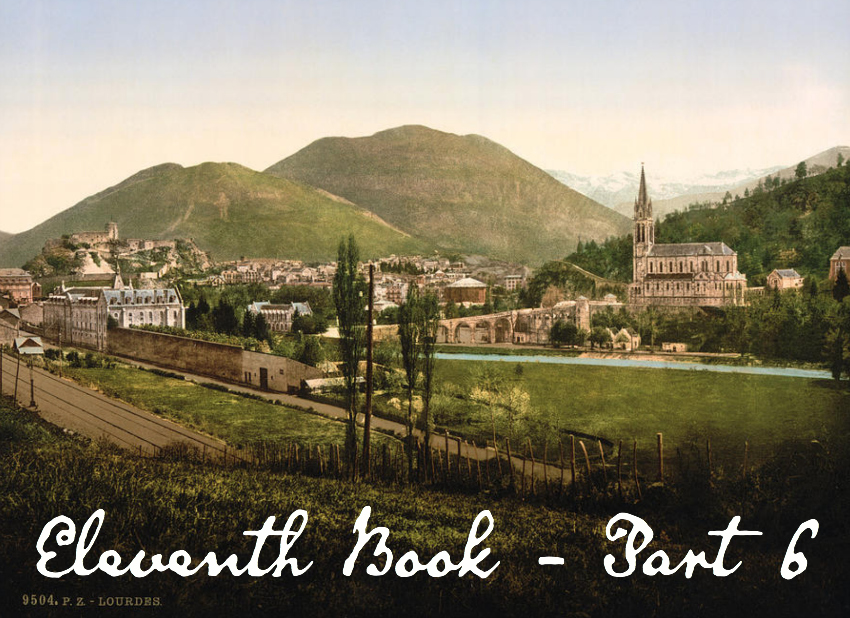After having seen the resplendent countenance of the Mother of the thrice holy God, how could she do otherwise than become the tender servant of those of whom the Son of the Virgin has said, “What ye shall do to the least of these little ones, ye shall do it unto me.”
It is with the Sisters of Charity and Christian Instruction at Nevers that the youthful Seer has taken the veil. Her name in Religion is Marie-Bernard. We saw her some time ago in her religious dress at the Mother-house of the Congregation. Although she is now twenty-five years of age, her countenance still preserves the character and grace of childhood. She possesses an incomparable charm―a charm which is not of here below and which raises the soul towards the regions of heaven. In her presence the heart feels stirred up with the best emotions, by I know not what sentiment of religion, and when you leave her you feel embalmed with the perfume of her calm innocence. You can easily understand the love of the Virgin for her. In other respects there is nothing extraordinary about her, nothing to point her out or make you divine the most important part she has played between heaven and earth. Her simplicity has not in the least suffered from the unheard-of agitation which arose around her. The concourse of multitudes and the enthusiasm of whole populations have no more troubled her soul, than would the water of a torrent tarnish the imperishable purity of a diamond, whether it were subjected an hour or a century to its waters.
God still visits her, no longer with radiant apparitions, but with the sanctified trials of suffering. She is often ill and her tortures are cruel. She supports them with a sweet and almost cheerful patience. Often she has been supposed to by dying. “I shall not die yet,” she says, smiling.
Never does she speak of the divine favor she has received, unless directly questioned on the subject. She was the witness of the Blessed Virgin. Now that she has fulfilled her message, she has retired into the shade of a religious life, full of humility and seeking to lose herself in the crowd of her companions.
It is a cause of grief to her when anyone from the world comes to find her out in the bosom of her retreat, and any circumstance obliges her once more to come prominently forward. She rejects whatever might recall to her the celebrity of her name in the Christian world. Buried in her cell, or absorbed in the care of the sick, she shuts her ears to all the tumults of earth; she turns away from them her thoughts and her heart to recollect herself in the peace of her solitude, and in the joys of charity. She lives in the humility of the Lord, and is dead to the vanities of this lower world. This book, which we have just written, and which speaks so much of Bernadette, will never be read by Sister Marie-Bernard.







